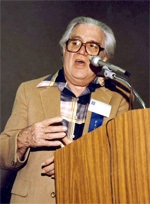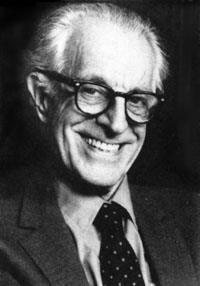EP85 Invited Address 06b - The Family as Deduced from Twenty Years of Families Only - Carl A. Whitaker, MD
- Average Rating:
- Not yet rated
- Topic Areas:
- Invited Addresses | Family Therapy | Psychotherapy | Experiential Therapy | Therapist Development
- Categories:
- Evolution of Psychotherapy | Evolution of Psychotherapy 1985 | Pioneers in Couples and Family Therapy
- Faculty:
- Carl Whitaker, MD | Albert Ellis, PhD
- Course Levels:
- Master Degree or Higher in Health-Related Field
- Duration:
- 1:28:51
- Format:
- Audio and Video
- Original Program Date:
- Dec 13, 1985
- License:
- Never Expires.
Description
Description: Carl Whitaker explores family therapy through a systemic lens, emphasizing therapists' role in understanding family dynamics, unconscious processes, and strategic communication. Challenging traditional therapeutic approaches, he advocates for collaborative, boundary-aware interventions that support family transformation and emotional growth.
With discussants Albert Ellis and Virginia Satir
Moderated by Camillo Loriedo
Educational Objectives:
- To list five characteristics of the biological family
- To list three unique qualities typical of the stepfamily, multiple marriage families, and families with adopted children
*Sessions may be edited for content and to preserve confidentiality*
Credits
Handouts
| Timestamped Transcript (911.4 KB) | 21 Pages | Available after Purchase |
Faculty

Carl Whitaker, MD Related Seminars and Products
Carl Whitaker, MD, was an American physician and psychotherapy pioneer family therapist. Whitaker is most well-known for acknowledging the role of the entire family in the therapeutic process. He is the founder of experiential family therapy, or the symbolic-experiential approach to therapy. Rather than scapegoating one family member or even a specific family problem, experiential family therapy looks at the entire family system. Several other approaches to family therapy have drawn heavily from Whitaker's theories.

Albert Ellis, PhD Related Seminars and Products
Albert Ellis, PhD, was an American psychologist who in 1955 developed Rational Emotive Behavior Therapy (REBT). He held M.A. and Ph.D. degrees in clinical psychology from Columbia University and American Board of Professional Psychology (ABPP). He also founded and was the President of the New York City-based Albert Ellis Institute for decades.
He is generally considered to be one of the originators of the cognitive revolutionary paradigm shift in psychotherapy and one of the founders of cognitive-behavioral therapies.[2]
Based on a 1982 professional survey of US and Canadian psychologists, he was considered as the second most influential psychotherapist in history (Carl Rogers ranked first in the survey; Sigmund Freud was ranked third).[3][4] Psychology Today noted, "No individual—not even Freud himself—has had a greater impact on modern psychotherapy."[5]


